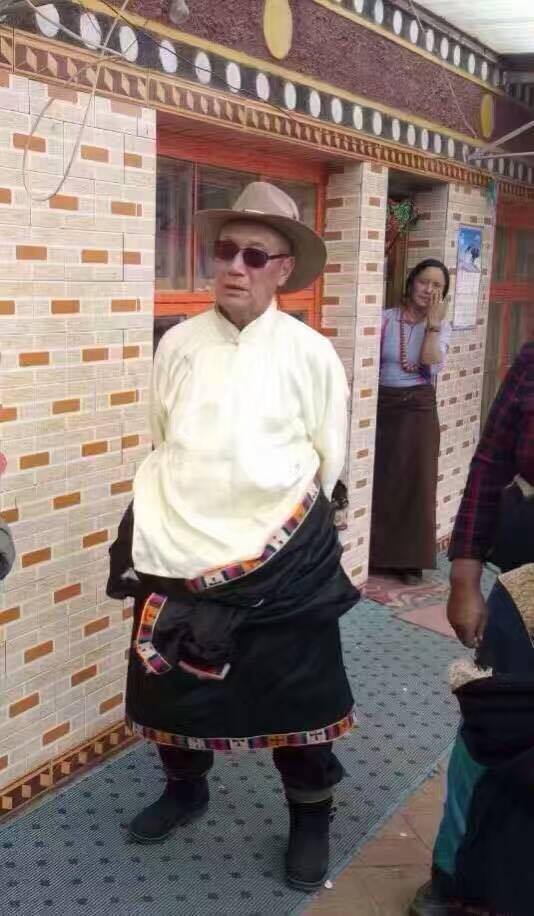Former Tibetan village leader jailed for ‘inciting secession’ released after four years

A former Tibetan village leader was released early this month after serving four years in prison. Akhu Gyatak (Ch: Gyadehor), in his mid-60s, returned to his home, accompanied by local security officers in Dowa (Ch: Duowa) Township in Rebkong (Ch: Tongren) County in Malho (Ch: Huangnan) Tibetan Autonomous Prefecture, Qinghai Province.
Akhu Gyatak’s family members have chosen not to share any information about his release due to fear of reprisals. According to a local source, local authorities have warned Gyatak’s family of severe consequences if they did.
Akhu Gyatak was among the many known and unknown Tibetans from Dowa who were arbitrarily detained and sentenced since widespread protests against Chinese government broke out in November 2012 in Rebkong. On 9 November 2012, thousands of Tibetan schoolchildren held a peaceful protest march against the alarming official apathy towards rising numbers of self-immolation protest in Rongwo town in Rebkong. On 8 November 2012, Tibetan schoolchildren in Dowa Township took down Chinese flags from their school building and the Township government office building. November 2012 witnessed the largest number of self-immolation with more than 80 Tibetans committing political suicides.
Gyatak’s sentencing was reported by official Chinese media, which stated that the former village chief was guilty of inciting secession when he visited the homes of self-immolators to offer his condolences. According to the verdict issued by the Malho Intermediate People’s Court, Gyatak ‘spread opinions related to “Tibet independence” when he brought cash and other goods to console families of self-immolators in November 2012’.
Official Chinese media also claimed that about 100 Tibetans including Gyatak’s relatives attended the trial. It is unlikely that Gyatak was provided legal representation and other means of recourse, like many other Tibetans who are routinely arbitrarily detained, tortured and imprisoned based on vague and overbroad legal provisions.

